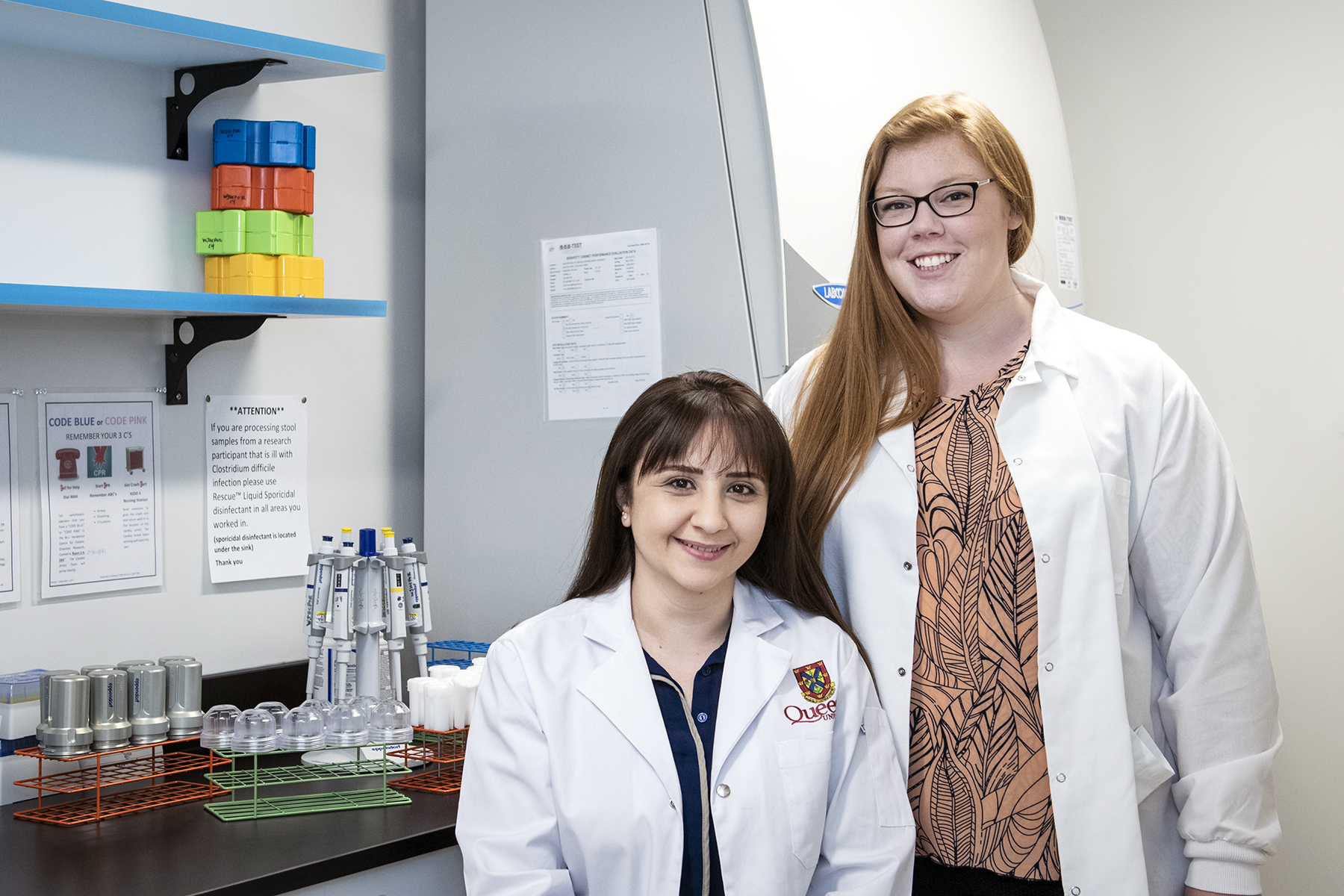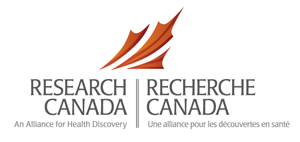 Two Queen’s University students are helping to drive the future of health research as members of one of Canada’s first graduate programs in translational medicine.
Two Queen’s University students are helping to drive the future of health research as members of one of Canada’s first graduate programs in translational medicine.
Ruaa Al-Qazazi and Kali De Repentigny are first-year Master’s students enrolled in the Translational Medicine Graduate Program within the Translational Institute of Medicine (TIME), in Queen’s Department of Medicine. This virtual research institute is the brainchild of Kingston Health Sciences Centre clinician-scientists Drs. Stephen Archer (Head, Department of Medicine) and Stephen Vanner (Director, Gastrointestinal Diseases Research Unit and Professor of Medicine). It brings together translational researchers and clinicians by giving them the necessary tools to enhance collaboration, including access to state-of-the-art research platforms, expertise and training.
The Translational Medicine Graduate Program, led by Dr. Paula James, exists under this umbrella and leverages Kingston’s uniquely intertwined university-hospital environment, integrating basic research skills with clinical experience – including interactions with patients – into the learning model.
For Ruaa and Kali, it’s a total-immersion experience of working side by side in labs with physicians and scientists whose research is at the leading edge of their field, while also connecting with health-care teams and the patients who will benefit from this research.
Ruaa, an MD from Iraq with a keen interest in cardiopulmonary research, is working with a team led by Dr. Archer, a world-leading specialist in pulmonary arterial hypertension, on figuring out the cellular mechanisms that cause this rare and fatal disease. “The environment in the lab is great,” she says. I want to be a clinician-scientist and this is a chance for me to learn from all these experienced people.”
“We also do clinical observerships, in which we shadow physicians in different specializations, and we attend medical grand rounds, following by discussions, facilitated by one of us. This is unique,” Ruaa says. “No other program offers this. We constantly have contact with patients, researchers and specialists. It strengthens both our knowledge and our skills.”
“It’s very rewarding and also very motivating, because you’re applying findings from basic research to enhance human health through the production of applicable new treatment or diagnostic test. Your goal is to help patients.”
For Kali, a recent BSc graduate in biology, the integration of bench research with patient interactions is a perfect fit. “I’ve always been interested in health sciences and I grew up always wanting to know ‘why?’ In this program the studies are so much more applicable to the person in front of you – it’s about putting a face on the little test tube you’re holding in your hands!”
Kali works with Dr. Paula James, a hematologist and one of Canada’s foremost experts on inherited bleeding disorders such as hemophilia, analysing blood samples in Canada’s largest-ever study of hemophilia carriers, as well as in a smaller study on pregnancy in hemophilia.
As part of the research team, Kali observes first-hand the entire process of patient recruitment, consent, assessment and sampling that produces the vials of blood she works with in the lab. “The research is directly related to patients and the mode of treatment,” she explains.
Kali says she would recommend her program “one hundred percent. It’s very broad and super-interesting. We have the opportunity to be with doctors, residents, nurses and allied health professionals, listening to their discussions, hearing the Q&A. You see how the research applies to everyone. It brings all the different perspectives together.”
“I don’t know why translational medicine hasn’t taken hold sooner,” she says. “The closer we are with the patient, the more motivated we are that the patient will be treated as optimally as possible.”
For more information about the Translational Medicine program, see:
https://deptmed.queensu.ca/deptmed/academics/translational-medicine-graduate-programs
